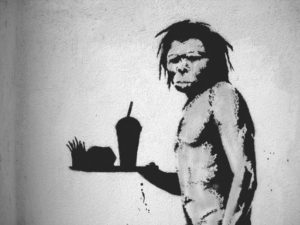 BY RAINA GOLDSTEIN BUNNAG
BY RAINA GOLDSTEIN BUNNAG
There are always new diets popping up that claim to cure health conditions and promote weight loss. Wading through hundreds of blogs and “expert” advice to find legitimate information is a great undertaking. I’m here to help provide some truth to the overwhelming world of eating well and being healthy.
Gluten-free diet: Gluten-free has been one of the most popular diet phrases for the last few years. Here’s some info on what the buzz is all about:
What’s gluten? Gluten is a protein in wheat, barley and rye. Due to its low cost and versatility, gluten is a common ingredient used in processing and is found in a plethora of the foods we eat. Common foods include: breads, flours, baked goods, beer and dressings/sauces. Gluten is such a popular ingredient that even foods that are naturally gluten-free like rice and oats may pick up traces of the protein during processing.
Why give it up? According to the National Institutes of Health, as many as 2 million Americans may have celiac disease. When a person with celiac eats gluten, their body produces an autoimmune response that damages the lining of the small intestine. Even the tiniest amount of gluten can cause serious health effects such as: nausea, diarrhea, chronic fatigue and severe dehydration. Your small intestine is where the majority of nutrients are absorbed, so the inflammation often causes malnutrition. Celiac is a serious condition and if you have symptoms, it’s important to get tested. A simple blood test will reveal whether your body is producing antibodies to gluten. Next, a biopsy is necessary to check if the inflammation has caused serious damage to your intestinal lining.
Gluten-free, for fun? Going gluten-free is painstakingly difficult, so why do some people voluntarily choose to avoid the protein? Some proponents, such as Dr. William Davis (author of Wheat Belly), claim that gluten causes inflammation and gastrointestinal problems. On his website, he says that eliminating it from the diet may improve chronic health conditions like irritable bowel syndrome, acne, diabetes and can even promote weight loss. Although there is plenty of anecdotal evidence on gluten-free successes, the scientific jury is still out on deciding whether gluten is to blame for these conditions.
Should I try it? Gluten is not essential for our diet, but in today’s world of busy schedules and processed foods, eating a balanced diet without gluten is a serious undertaking. Critics claim that if you do not have celiac or a related disorder, eliminating gluten from your diet will likely not have any benefits and may cause a nutrient deficiency. B-vitamins, iron and fiber are the major nutrients you may be missing if you give up gluten-containing products. For this reason, it is crucial to check nutrition labels when making the adjustment.
Take-away: There are plenty of ways to eat a healthy, balanced diet that includes gluten. However, eliminating gluten encourages you to reduce your intake of processed foods, which is always likely to improve your health. If you do choose to remove gluten from your diet, make sure you consult with a physician or nutritionist to ensure that you are consuming all the nutrients your body needs.
Paleolithic Diet: The Paleo diet is another popular diet that is even less straightforward than gluten-free. Here are the basics:
Paleo, what?: The premise of the Paleolithic (Paleo) Diet is to eat like our ancestors did between 2.6 million and 10,000 years ago, long before modern agriculture. The only foods you can eat on the diet are ones that can be hunted and gathered, e.g.: meat, seafood, eggs, fruits and vegetables. The red light is given to foods that require agricultural and processing techniques, including legumes, grains, dairy, salt, sugar and refined oils. By nature, the Paleo Diet is also gluten-free.
Why so extreme? Eating like a caveman may sound crazy, but proponents say that our bodies haven’t evolved as quickly as our food. They claim that eating a modern, western diet is harmful to our health and going back to our diet roots will help reduce many of the chronic diseases that are common today. On his website, Dr. Loran Cordian, Ph.D., (founder of the Paleo Diet) claims that this way of eating may reduce the likelihood of type 2 diabetes, osteoporosis, hypertension (high blood pressure) and will likely promote weight loss.
Nutrition facts: A strict Paleo diet contains a much different nutrient composition than the Western diet most of us are used to eating. Paleo followers consume significantly more protein, fewer carbohydrates, and less salt and sugar. In addition, they may have a higher intake of saturated fats from animal foods. A Paleo breakfast would consist of an omelet made with omega-3 fortified eggs and organic vegetables while dinner may be grass-fed roast beef with roasted veggies (cooked in olive oil).
Criticism: While the Paleo diet does have support in the mainstream and scientific worlds, many researchers and clinicians are not convinced. Critics claim that while this diet may have been great for our hunter-gatherer ancestors, it is nearly impossible to maintain today due to the fact that almost everything we eat has been domesticated. Eating wild game is an impossibility for most, and modern domesticated fruits and veggies like bananas and carrots have little relation to the produce our ancestors ate years ago. Nutrition experts warn about the possibility of consuming too much saturated fat from animal products and not enough calcium due to lack of dairy.
Take-away: Similar to a gluten-free diet, the principles of Paleo promote fresh, whole foods and discourage processed and artificial ingredients. These are all great diet rules to live by. However, this is a difficult diet to adhere to and may be impractical for people who don’t have extra time to dedicate to shopping and preparing food. The problem is that our food system (particularly animal products) is infiltrated with artificial and harmful ingredients. Even with the best intentions, it is hard to eat the clean diet promoted by Paleo. The increase in cholesterol and saturated fat from animal products could end up doing more harm than good, if not followed carefully and under the supervision of a clinician.
Always be wary of the extreme claims or severe restrictions made by fad diets. While the internet does contain truthful information, there is plenty of false and harmful information out there as well. Check that your resources contain legitimate, scientific evidence and talk with your physician before beginning a new diet as it may interfere with individual health issues or medications. Whole foods, real foods and variety are the key to making sure you have all the nutrients your body needs to run at its best.
Questions, comments or suggestions? Email me at rainagoldstein@southsidepride.com.






















